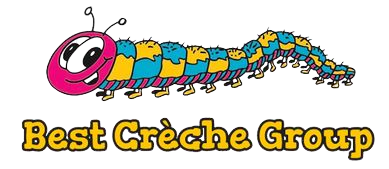Our Ethos and Curriculum
Listowel Childcare offers a developmentally appropriate early childhood education program that meets the needs of the “whole child” and encourages the power of play. Play is the primary occupation of a child. The curriculum respects both the age and the individual needs of each child. We provide a safe, healthy learning environment that will advance your child’s physical and intellectual competence, communication and creativity. Social and emotional development is encouraged to nurture self-esteem, social responsibility and pro-social skills.
What is developmentally appropriate practice?
The physical environment at Listowel Childcare is well organized and safe. Safety and nutrition are incorporated into the developmental curriculum. Each week/month parents receive a detailed lesson plan for the week. The learning environment is designed to offer larger and smaller spaces for learning. Gross motor movement is encouraged through a variety of indoor and outdoor play equipment. Daily small and large group times are implemented which includes- calendar, weather, discussion, exercise, rhymes, music, dance, yoga and much more.
Daily activities in our preschool encourage learning and problem solving, as well as logical thinking skills such as classifying objects, comparing/measuring, arranging objects in a series, pattern recognition, awareness of time concepts and sequence, awareness of position in space, one-to-one correspondence, and using numbers and counting. Opportunities are given to encourage representational and symbolic thought either through creative expressive activities such as art activities and projects, but also through unstructured opportunities for dramatic play. Aistear and Siolta inspired ideas are implemented in our program. Listowel Childcare is part of AIM (Access and Inclusion Model) which is designed to ensure that children with additional needs can access our setting.
Language activities encourage oral self-expression, answering and asking questions, following oral direction and conversations. Pre-reading and pre-writing skills are also included, such as listening to stories and participating in story time discussions, understanding of print concepts, beginning knowledge of the alphabet, phonic concepts, the use of emerging reading skills to make meaning from print, Activities are provided in a fun and creative manner both in large and small group settings.
We stress the importance of positive teacher-child interactions and the appreciation of one another. Teacher-child interactions communicate acceptance, respect, and trust with each child as well as respect for basic group expectations. Positive guidance strategies are utilized in our preschool to encourage respect, care and social responsibility for each other.
Emergent curriculum used allows children to remain interested, involved and content whilst still attaining a wealth of information, which promotes individuality and independence of the children. Emergent curriculum is a philosophy of teaching and way of planning curriculum that focuses on being responsive to children’s interests to create meaningful learning experiences. This philosophy prioritizes active participation, relationship building, flexible and adaptable methods, inquiry, and play-based learning.
Outdoor play is an important part of childhood. We believe that most of the things that can be done inside can also be done outside, for example reading stories, taking part in pretend play, painting, doing projects, organizing outings, playing with sand or water, etc. Playing and learning outside in our preschool provides opportunities for young children to experience the world with all of their senses. It helps children with the development of social skills, spatial awareness, cooperation, communication and sensory awareness. Outdoor play can also assist children to learn about decision making, develop their ability to share, develop conceptual ability, the ability to imagine an idea without seeing it in practice, learn about their body and their ability as well as become more independent and healthy.
Project approach used by our educators refers to a set of teaching strategies that enable us to guide children through in-depth studies of real-world topics. The Project Approach builds on natural curiosity, enabling children to interact, question, connect, problem-solve, communicate, reflect, and can involve their parents as well. This kind of authentic learning extends beyond the classroom to each student’s home, community, nation, and the world. It essentially makes learning the stuff of real life and children active participants in and shapers of their worlds.
Play-Based approach is a child-centered program where children choose activities based on the current interests. Learning activities such as creative arts, literacy, numeracy, social studies, science, etc. are presented to children through play. Our play-based preschool room is separated into several sections – a reading area, construction area, home corner, arts and crafts and many more. Children can easily move from one activity to the next or stay as long as they like in one section, this may mean they are playing alone or in small groups. When children are playing with toys, they are learning about the concept of shape, size, volume, etc. If they have to share the toy, they learn how to negotiate and socialize with other children.
